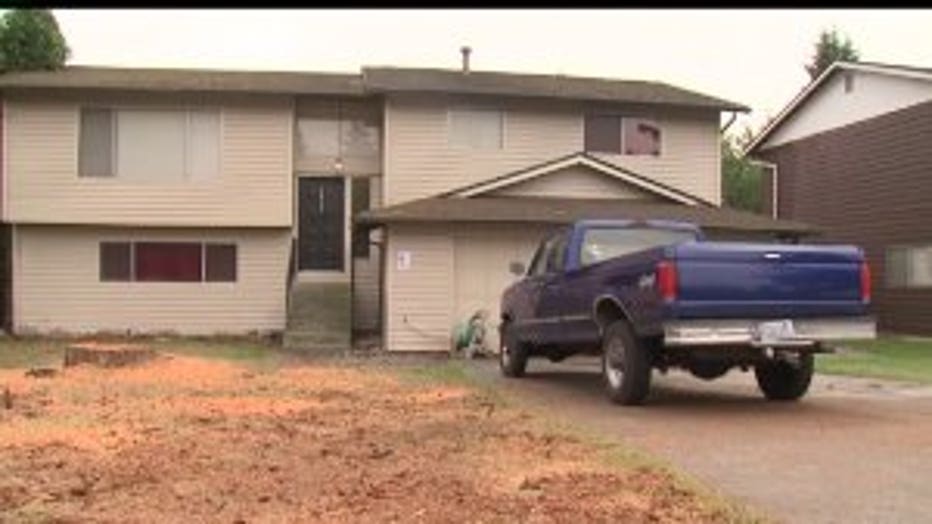Neighbors' concerns led to city's moratorium on sex offender group homes
FEDERAL WAY -- Another local city is taking a strict stance on sex offender group homes. Federal Way is the latest to issue a moratorium after neighbors on one street took their concerns to city leaders.

Residents in one Federal Way neighborhood say there is nothing worse than feeling like a prisoner in their own home.
On Wednesday, there was a pickup truck in the driveway but no one was home at 2809 S. 284th St. and neighbors want to keep it that way. The city closed down the group home in June.
“It’s hard I keep all my curtains all closed,” Lois Eriksson said Wednesday night.
Eriksson said she knew she was living across from a child molester and a convicted rapist for a while.
“It just made me uncomfortable,” said Eriksson.
But the discomfort soon turned into fear when it went from a few sex offenders to a large group.
“Everybody can put up with a few but eight -- that’s pushing the limit,” said resident Steven Metzenberg.
The city of Federal Way is making it clear that the convicted sex offenders have overstayed their welcome.
“We closed the house down under code violations,” said Mayor Skip Priest.
Without new ordinances, Priest said in a news release, that home could potentially reopen as sex offender housing if they repair the violations.
So, on Tuesday night the City Council issued a six-month moratorium on new group homes that would house sex offenders and also passed an emergency business measure that will allow the city to require future group homes to meet certain regulations.
“These group homes should not be in neighborhoods,” said Priest.
The Legislature this year granted local cities more power to regulate group homes. The city of Puyallup has already essentially banned them in most areas and Federal Way could possibly follow Puyallup’s lead.
“It’s absolutely not acceptable in our city,” said Priest.
Over in Kent, the fight between the city and one property manager is escalating. A $500-per-day fine is adding up until Eddie Weber evicts his sex offender tenants.
“It’s more dangerous to have these people at large, unstructured,” said Weber.
Weber says it’s hard for sex offenders to find housing and he refuses to let them roam the streets despite threats from the city to take the matter to court.
For the most part, Kent residents don’t have complaints about Weber’s homes. But in Federal Way, neighbors are more than concerned.
“They would stand out there and smoke, whistle and do catcalls and stuff,” said Metzenberg.
The lewd behavior was enough to force one family to move out of the neighborhood for good. The residents now say they can finally let their kids out to play, something they could not do for a long time. The city of Federal Way says during the moratorium they are hoping to find a permanent fix so sex offender group homes cannot move into neighborhoods.
The city currently has only three locations with two registered sex offenders living in a residence. With the June closure of the group home, there are currently no sex offender group homes with more than two offenders in residence.

